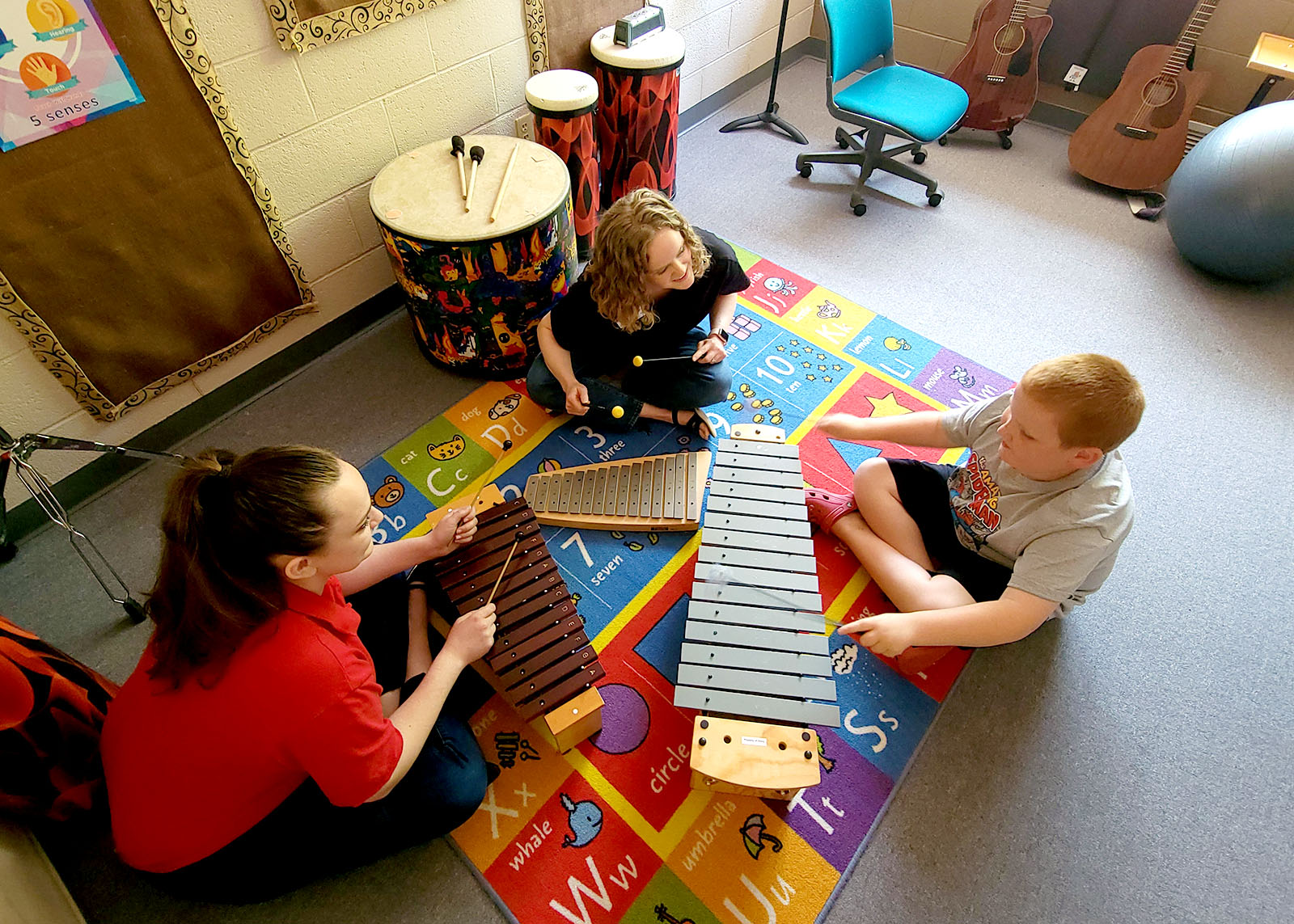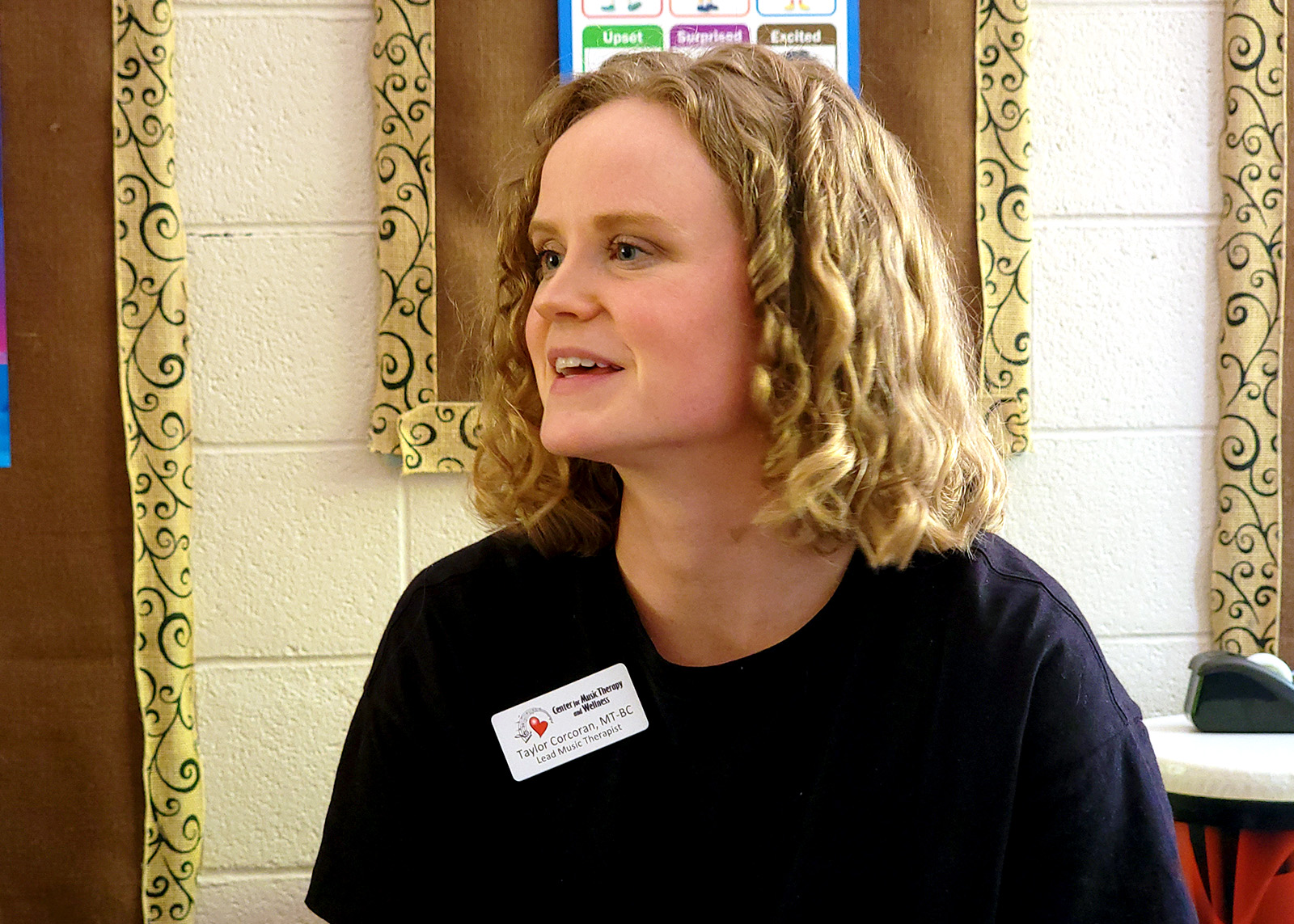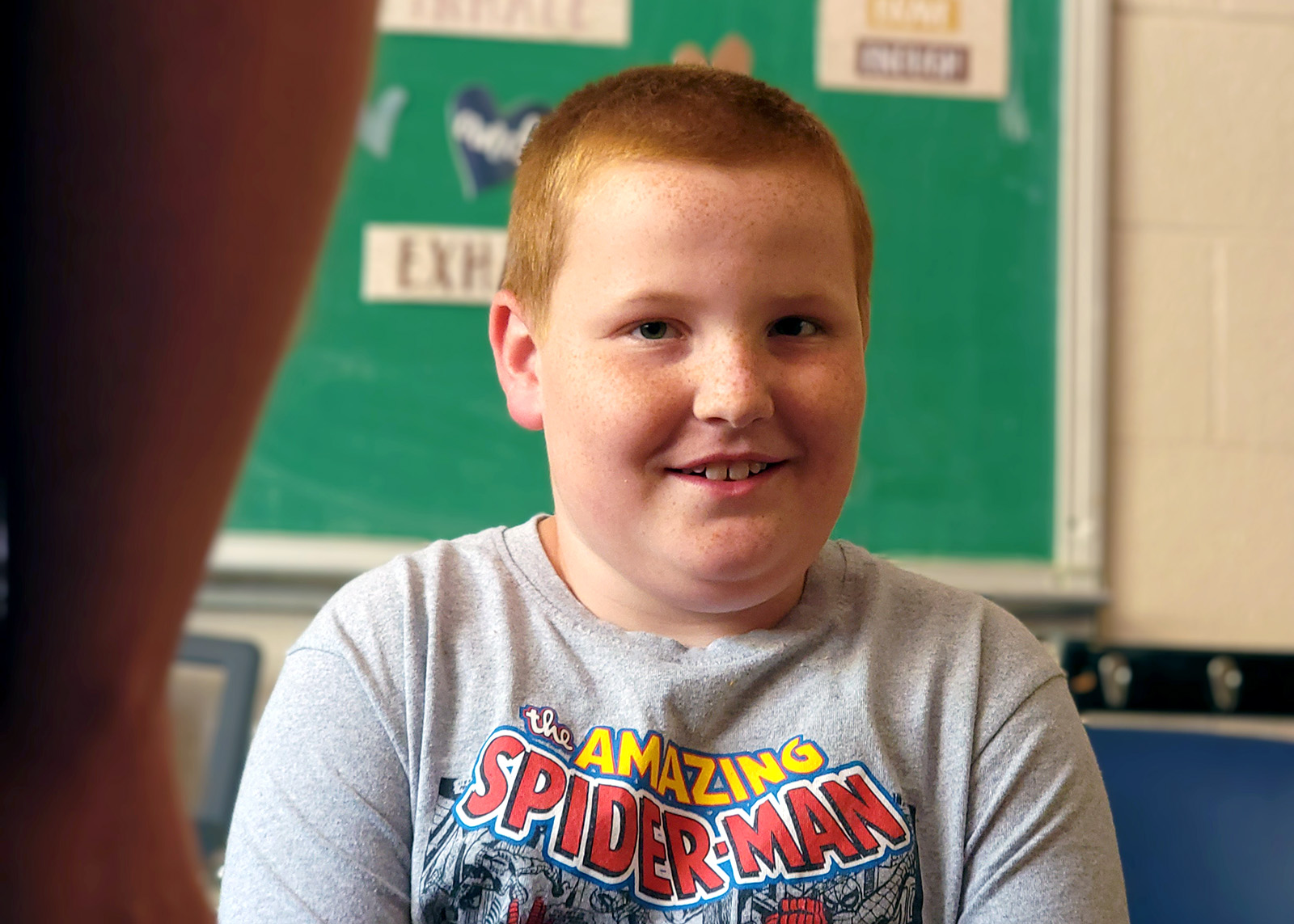Cash Miller is working on learning his family’s phone number and home address. The 11-year-old’s mom wants Cash to share that information with a safe adult in the event he ever gets lost or wanders away.
While memorizing numbers and street addresses might be easy for some, Cash has autism and sometimes struggles to maintain focus and remember things.

So once a week, Cash gets to visit with his music therapist Taylor Corcoran and student Abby Humphries at Drury University's Center for Music Therapy and Wellness.
The trio uses their singing voices, instruments and balance balls to turn Cash’s phone number and address into songs and rhymes the boy can recite.
Though it might look like a typical sing-a-long, Corcoron said they are employing different strategies to help Cash improve his sustained attention over time and his communication skills.

“We’re interacting with people to help them reach their goals and using music as our tool,” Corcoron said later in an email. “With Cash, we are working on his social skills, eye contact, and listening for others' responses.”
“He gets to talking really quickly, so we’re using music-based interventions to help work on those skills.”
Corcoran is a board certified music therapist with the Center for Music Therapy and Wellness.
The center partners with Drury University’s Music Therapy Program in that the center’s clinic is located on the Drury campus. Drury University music therapy students work alongside and under the supervision of board certified music therapists to serve a variety of clients who all have very different goals.
Corcoran’s caseload, for example, is split in thirds: children at a mental health hospital, Parkinson’s patients and clients with developmental disabilities.
The Drury students are able to complete field studies hours as they work toward degrees in music therapy.
“Music therapy is the use of music or music-based interventions to reach nonmusical goals,” Corcoran explained. “We’re working on functional goals that will transfer outside of the music therapy session. It could be anything from attention skills, education-based skills, motor skills, speech and language.”
Because Missouri doesn’t have a licensure for music therapy, insurance doesn’t cover it and clients normally have to pay out of pocket.
The Center for Music Therapy and Wellness partners with a nonprofit called Music Therapy of the Ozarks that helps clients pay for services.



